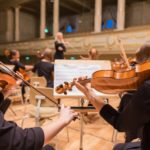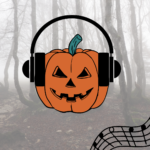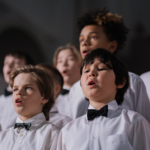Exploring the Best Payment Methods for UK Players at Twinky Win Casino: A Comprehensive Evaluation
Evaluation of Payment Methods at Twinky Win Casino for UK Players For UK players exploring various online casinos, understanding the available payment methods is crucial. At Twinky Win Casino, players can visit the site https://twinkywin.org to explore a wide range of secure and efficient payment options tailored to their needs. Bonuses and Promotions Twinky Win […]
Read moreUncover the Exciting Bonuses and Promotions at Tropical Wins Casino – A Complete Guide
Exploring the Generous Bonuses and Promotions at Tropical Wins Casino When it comes to finding a casino that offers a variety of enticing bonuses, many players turn their attention to the vibrant and exciting world of Tropical Wins Casino. For more details on what this platform has to offer, you can easily visit the site […]
Read moreExploring the Variety of Payment Methods for UK Players at Richy Leo Casino: A Comprehensive Guide
The Range of Payment Methods Available for UK Players at Richy Leo Casino When exploring the world of online gaming, it’s essential to identify platforms that offer a seamless and secure transaction process. For UK players looking into the options available at Richy Leo Casino, there is a variety of payment methods specifically designed to […]
Read moreDiscover the Diverse Payment Methods Offered at Bounty Reels Casino – A Comprehensive Guide
Exploring the Range of Payment Methods Available at Bounty Reels Casino For an optimal online gaming experience, it’s crucial to choose a casino that offers a variety of convenient payment methods. At Bounty Reels Casino, players can enjoy a seamless gaming experience by utilizing the diverse range of payment options available. To get started with […]
Read moreUltimate Guide to Payment Methods for UK Players at Libra Spins Casino: A Comprehensive Analysis
In-depth analysis of the payment methods available for UK players at Libra Spins Casino For UK players looking to engage in exciting online gaming experiences, visit the site https://libraspins.uk to explore the diverse payment methods offered at Libra Spins Casino. The platform ensures seamless transactions, allowing players to fully immerse themselves in the gaming atmosphere […]
Read moreTop Strategies for Ensuring Player Safety and Security at Slots Muse Casino
Ensuring Player Safety and Security at Slots Muse Casino In today’s digital age, the safety and security of online gamblers are of utmost importance. When choosing a platform to indulge in gaming activities, players are increasingly cautious about the measures implemented to safeguard their experience. At Slots Muse Casino, ensuring the safety of players and […]
Read moreDiscover the Top Payment Methods for UK Players at Professor Wins Casino – A Comprehensive Guide
Top Payment Methods for UK Players at Professor Wins Casino For UK players seeking a seamless gaming experience, it’s essential to choose the best payment methods available. To explore a wide range of options, you can visit the site https://professorwins.uk and discover more about the transactional flexibility at Professor Wins Casino. Professor Wins Casino Review […]
Read moreYeti Win Casino Review: A Comprehensive Look at the Exciting Games Available for UK Players
Reviewing the Extensive Range of Games Offered by Yeti Win Casino for UK Players For an in-depth review of the variety and quality of games available, visit Yeti Win Casino https://yetiwin-casino.com website. UK players looking for a diverse gaming experience will find that Yeti Win Casino provides an impressive selection to suit all preferences and […]
Read moreProtecting Players: A Look at the Security Protocols at Koi Spins Casino
Ensuring Player Safety: The Security Measures in Place at Koi Spins Casino For those exploring the world of online casinos, understanding the security measures in place is crucial. When it comes to player safety, Koi Spins https://koi-spins.com offers a comprehensive overview of what Koi Spins Casino provides to protect its users. Introduction to Online Casino […]
Read moreWhere to Feed Your Group
When you’re tasked with feeding a group of hungry students on a tight budget, you might feel like you’ve been asked to find a needle in a haystack. But don’t worry, after almost three decades, the Forum team has rounded up a few great options for students and we are happy to share the tricks […]
Read moreWhat are my options for taking this show on the road?
Your students have enjoyed and learned from the festival experience. That’s great! But you are looking for additional horizons to broaden the learning and revive excitement in your program. We’re here to help you! Although our festivals are scheduled up and down the state of California, we have even more ideas and options. Let us […]
Read more
Exploring Sustainable Practices in Student Travel
Student travel is a transformative experience, offering opportunities for learning and personal growth. At Forum, we are proud to be able to provide these experiences to enrich the lives of young musicians everywhere. However, amidst the excitement of exploration, it’s essential to consider the environmental impacts of travel choices. We’re happy to work with you […]
Read more
What’s New at Knott’s Berry Farm?
Knott’s Berry Farm is one of the most beloved theme parks in Southern California. Rich in history and full of exhilarating fun for guests of all ages, it’s a perfect place to bring your group. If you haven’t visited in a while, you may be surprised by some of the exciting changes that have come […]
Read more
Perks of using a Theme Park’s App
Theme parks can be hard to navigate, whether it is your first visit or your hundredth. These days, most major theme parks have apps available that can make visiting easier than ever! We’ll walk you through the in’s and out’s of theme park apps so that you and your students are most prepared for your […]
Read moreFestival Etiquette for Directors 101, Part II
Good concert/festival behavior is learned, and it is the director’s responsibility to teach it. If not the music teacher, who will teach the students about acceptable festival etiquette? A good teacher of festival etiquette…
Read moreFestival Etiquette for Students 101, Part I
We get it. Students are just now getting back into performance venues after a covid hiatus. What could be a better time than to review basic etiquette for young musicians who are performing AND listening to the festival performers. Explain to your students that everyone has worked very hard to get to this event. By […]
Read more
Overnight Trips- Terms and Tricks to Know
Planning an overnight trip can be daunting. Luckily, we have a team of experts happy to help ensure your planning process is as seamless as possible. Whether you’re considering your first overnight trip, or you are a seasoned veteran, we’ve compiled a helpful list of terms and tricks you should know: RFP or RFQ: This […]
Read moreThe Importance of Accurate Contact Information
For our returning directors, you may notice a change this year as you’re completing your stage set-up sheet: the addition of your cell phone number and an offsite emergency contact. We know it can be difficult to give out your personal cell with today’s landscape of spam calls and scammers becoming more and more frequent. […]
Read moreStudent Travel Planning on a Budget
What is more exciting for your music program than planning a trip together? A trip is a surefire way to recruit new students and keep experienced students. Combining music education and fun is just not that difficult. But most school music programs are mindful of budgetary concerns for students and their families. Let’s check out […]
Read more
Fundraising 101
Fundraising is a crucial step in the planning process of your school year and the rewarding festivals and events your students will get to enjoy. There can be a lot of questions for fundraisers- where do you start? What do you consider? What ideas work best? Truth is, it all depends on your school and […]
Read moreThe Benefits of Booking Early
At this time of year, travel planners are probably encouraging you to book your 2024 student trip now. Take note – booking at the start of the school year definitely has benefits for your trip. With early planning… Start planning and talking up the trip with your students now! You have everything to win and […]
Read more
10 Celebrities Who Play Musical Instruments
Learning to play a musical instrument takes hard work, dedication, and lots of practice. It can be hard to keep students engaged in the early stages of learning to read music and stay committed. However, there is a long list of great musicians and even celebrities who have made that commitment to practice before them! […]
Read moreDid You Know?
We have been enriching students lives through performance for 27 years! We welcome returning groups and new groups every year! Whether you are brand new or a Forum Festivals veteran, here’s a quick list of the services we can provide your group during the festival and beyond. Did you know… If you have more questions, […]
Read moreUpdates to the Knott’s Chaperone Policy
Knott’s has recently announced another change to their group chaperone policies moving forward. As of February 3, no wristbands will be required and the 1:10 chaperone ratio, although recommended, is not required moving forward. Knott’s will continue to request chaperone names and mobile numbers for student groups. The chaperone policy will only be implemented when […]
Read moreConference Season Is Here!
We’re so excited to be back representing Forum Music Festivals and Forum Educational Travel this conference season! We will be at the Arizona Music Educators Association (AMEA) Conference February 3-4, 2023 at the Mesa Convention Center. Be sure to stop by and say hello to Gary and Michelle Wampler at our booth! After that, you […]
Read moreOrganizing a Student Trip
You want to share your love of music while inspiring your students. But where do you begin? At Forum Music Festivals, we’ve set up thousands of overnight trips for music students. Travel embraces learning, fun, and unforgettable reminiscences all wrapped in one trip. We’ve got a few suggestions to share.
Read more
Keeping Music in Play at Your School
Have you ever thought about the dizzying number of hats worn by music teachers? · Teacher of music (goes without saying) · Pep band organizer · Budget planner · Recruiter · Rehearsal or sectional leader · Booster club overseer · Accompanist · Show designer · Music librarian · Performer of gigs · Private instructor Let’s […]
Read more
An Easy Overnight Festival Trip Awaits…in San Diego
Did you know that Forum Music Festivals produces festival in the San Diego area? San Diego offers sunshine, beaches, and fantastic sightseeing opportunities. But another benefit to exploring America’s Finest City is how easy it is to navigate an overnight trip with your students. A vibrant city filled with musical and cultural options, in San […]
Read more
Spooky, Strange, Eerie, and Mysterious Music
It’s the middle of October and you know what that means. Halloween is right around the corner. Here’s some spooky music to impress your students and teach them about why music can be spooky! And maybe you’ll have some of these pieces in your repertoire that they can sight read or sight sing a few […]
Read more
Keep Calm and Recruit Boys for Choir
For over 20 years, Forum Music Festivals has welcomed a 90-voice boys’ choir to perform at festival. Are they pledges to the Vienna Boys Choir? Nope, they are from a public middle school where their teacher made singing a very cool thing to do. At this school, singing in the Boys’ Choir is a tradition. […]
Read moreClarifying Knott’s Chaperone Policy
August 2023 Dear Forum Festival Friends, In light of recent events, Knott’s Berry Farm has amended their chaperone policy. For the general public, this means that there must be one chaperone for every four minors under the age of 17. For our groups, that ratio will be based on one chaperone for every ten students […]
Read moreThe Finish Line is Near!
A Year-End Checklist for Music Teachers Reward administration and school staff with a BIG MUSICAL THANK-YOU presented by your students! Invite them to the band or choir room (or MPR) for a mini concert with refreshments! Reward parents and friends who have supported your program with a BIG MUSICAL THANK-YOU at the end of the […]
Read more8 Lesser Known (But Fabulous) So Cal Excursions
Southern California is chock full of tucked away gems that will intrigue students and adults alike– performance groups, STEAM groups, and history groups. Let Forum Music Festivals find clever and unique options to add to your festival trip. Bowers Museum – This little museum boasts amazing exhibitions, an opportunity to perform, and an easy centralized location. […]
Read more
Last Minute Planning in a Pandemic Year
As we slowly creep into a new normal, music educators still seek performance options for young musicians. Never fear! There’s still time! Give us a call – With our experience and ideas, you can plan an outstanding experience that includes all the essentials – learning, fun, and performance! After all, we’ve been developing terrific […]
Read more
Making Practice Fun!
Learning any new skill is a challenge. Doing it in front of your friends and classmates is extra-challenging. The school music teacher has the work cut out for them. Experienced music teachers know the frustration of unpracticed students in their ensembles. Encouraging at-home practice can be problematic since the teacher is unfamiliar with the student’s […]
Read moreBest Lines from 27 Years of Festivals
For 27 years, Forum Music Festivals has hosted thousands of student music ensembles and directors. Over the years, students, judges, and directors have shared some insightful comments at festivals. We’ve chuckled from some and learned from them all! As we launch our 27th year, we extend our appreciation and gratitude to the music students and […]
Read moreThrilling Adventures…Close to Home
Did you know that awesome excursions are right here in your own backyard? Or at least within a days’ travel? Shorter trips still offer the features and feeling of a retreat, while keeping students closer to home. Forum Music Festivals can be combined with a variety of appealing close to home travel for students. Theme […]
Read more
Disney Imagination Campus Update
Dear Forum Friends, Applications are now open for Disney Imagination Campus programs. This is the newly re-named program (formerly Disney Performing Arts) for performances in the park and performing arts workshops. They are also offer education workshops as well. To apply, visit https://planears.disney.com to submit an application. To combine a workshop or performance in the […]
Read moreCOVID-19 Festival Policy
Updated 12/28/21 All destinations and suppliers have their own rules related to COVID-19. For example, you may be required to quarantine upon arrival in some locations. Some locations may require masks or social distancing, or they may require you to provide proof of vaccination or negative testing. While Forum Educational Travel will try to assist […]
Read moreSan Diego Dates Added to 2022 Season
So much to do. So much to see. Forum Festivals has added San Diego dates to our 2022 festival schedule. Join us in San Diego for a morning festival with the remainder of the day or weekend to enjoy all the sights! Fabulous weather aside, San Diego offers historic, cultural, and fun things to do! Check out […]
Read moreGrowing Your Program
Rebuilding & Recruiting in School Music Programs It’s time to consider the next steps to grow your program. The world of remote learning was tough on everyone, but particularly on music teachers. Student music programs that, by their very nature, are designed to teach a performance art had to test the boundaries of creativity and […]
Read moreForum Festivals & Disney Imagination Campus!
At Forum Music Festivals, we’re delighted to highlight Disney Imagination Campus. Our friends at Disney have re-imagined their iconic workshops and performance opportunities. These beloved Disney programs mesh perfectly with your Forum Festivals weekend – fun, learning, and enthusiasm! The popular vocal & instrumental Soundtrack Session workshops & performances are back and even better! Young […]
Read moreTraveling Green
10 Ideas for Sustainable Student Travel As we wait for a green light to student travel, let’s consider the impact our travel has on our students, the destination, and the planet. Our teens live in a world where reducing their footprint on our planet is incredibly critical. To promote sustainable travel, meet your students’ ideas […]
Read moreJust a Note About Appreciation
Well, 2020 is over and there’s probably no one on Planet Earth that wants to re-visit that year. As we dust off those cobwebs, I can’t help but start 2021 with a spark of hope and a bucketful of admiration. Although we missed you in 2020, there’s no doubt that music teachers have really stepped […]
Read moreSo, What’s Happening with Forum Festivals?
2021 is finally here and it is only natural that questions arise about what is going on with Forum Music Festivals. We are here and we will be ready to go when you are. However, let’s be realistic about the possibility that 2021 might not look like the Forum Festivals of previous years. Right now, […]
Read moreGreat News from A Friend!
A familiar face (and voice) from Forum Music Festivals shares some very exciting news, particularly for students of Big Band Drumming! Matt Johnson, longtime announcer at Forum, has published a new book. Check out details below – you’ll want to have this important resource in your educational tool box! DRUMMER/MUSIC EDUCATOR MATT JOHNSON ANNOUNCES RELEASE OF BIG […]
Read moreWe have moved!
Times are rapidly changing, but we want you to know that we are still here for you! Our operations have moved from our “old” office to new remote digs! Phone number is the same, email is the same, faces are the same, but with renewed inspiration! If you need to mail anything to us, please […]
Read moreMusic During Covid-19
During times of duress and difficulty, people all across the world have always turned to music for calm and support. Current times are no different. Music’s transformational power to convey emotion and reach out to others is felt everywhere. Though students are learning in a new way and teachers are learning new ways to teach, […]
Read moreCOVID-19 Coronavirus Update
Updated December 28, 2021 All destinations and suppliers have their own rules related to COVID-19. For example, you may be required to quarantine upon arrival in some locations. Some locations may require masks or social distancing, or they may require you to provide proof of vaccination or negative testing. While Forum Educational Travel will try […]
Read moreFinessing the Performance Schedule & How It Works
If you’ve been with us for a while, you probably understand our scheduling process. However, if you are a “newbie” to Forum, you may need an explanation of how our scheduling works. Some of our competitors “sell” performance spots. This works for early registrants if they absolutely must have a location and a time spot […]
Read moreLast Minute Planning Can Still Work!
Not all of us are uber planners. Some of us need to catch our breath before launching into another big program. Those folks start planning trips after the holiday concerts are done, January classes are set, and reality sets in that a music trip hasn’t been booked quite yet. Never fear! There’s still time! Give […]
Read moreThe Gift of…
At this beautiful season, we can’t help but think of all the gifts that music education provides to students and teachers. As we celebrate our 25th year, we’re honored to be part of those gifts. The gift of music is magical. The hope and joy imparted to both performer and listener cannot be taken lightly. […]
Read moreHow Mister Rogers’ Neighborhood Impacted Music Education
Recently, this article regarding Mister Rogers’ impact on music education appeared in the NAfME e-newsletter. Given its timeliness with the release of the recent movie as well as his enduring legacy that touches parents, teachers, and all of us, we are honored to reprint the article here. This article was originally posted on Cued In, […]
Read moreHow to Promote the Music Trip
Gaining support for organizing the perfect trip can be frustrating and time-consuming. You need a strategy for creating a base of support from parents, students, and administration. We’re here to share some great guidelines for promoting your trip. Enlist the help of another teacher! If you and another teacher at your school or in your […]
Read moreSurvival Guide for First-Time Group Travel
Consider using a tour operator. Your expertise is teaching. A travel planner’s expertise is to know the nuts and bolts of millions of elements that make a trip run smoothly. Many directors or booster clubs think they can do it themselves on the cheap. A travel planner earns bulk discounts with hotels, restaurants, and attractions […]
Read moreWhy Strings?
The American String Teachers Association (ASTA) is an organization whose mission is to provide professional development, career building and support, and a community of peers for all teachers of stringed instruments. The organization promotes advocacy for string programs and string teachers through many brochures and publications available on their website at www.astaweb.com. As members of […]
Read more5 Questions to Ask When Choosing a Festival
1. Is the festival scheduled in an appropriate venue? Choosing a festival with a great performance venue really makes a big difference to your students. Many times, we’ve heard from discouraged directors who scheduled another festival where a school cafeteria, a multi-purpose room, or a gymnasium was considered a suitable venue. At Forum, that’s just […]
Read moreSetting Up a Jazz Program
Developing a jazz band at your school can be fun and inspiring. A jazz band can serve as a mighty tool for recruiting. It helps students with sight reading. It teaches leadership, self-confidence, and reinforces creative expression. If your background does not specifically include jazz performance, you can still start a jazz program for your […]
Read moreHow to Feed A Student Group
When taking a student group on any trip, you are faced with the prospect of feeding a lot of hungry teenagers. Feeding the endlessly ravenous can be a pretty daunting task. How about a short list of ideas to feed the crowd? Meal vouchers – Offered at most theme parks, students can individually redeem vouchers […]
Read moreWhy Should I Register Early?
It takes the pressure off remembering to register when school starts. Your first choice date is locked in. You can announce your plans to parents & boosters at Back-to-School night. Potential students are attracted to sign up for band, orchestra, choir, etc. More time for fundraising! It allows more time for grant writing or to […]
Read moreChecklist for end of the year!
Include your students in a big musical thank you to administration & staff for supporting the music program this year! Include your students in a big musical thank you to their parents and boosters! Tell your students to sign up for next year and give them a reason why they should! (Music trip, friendship, choir/band/orchestra […]
Read moreNYC Music Teacher Honored as Top 10 Finalist for the Global Teacher Prize
It’s Teacher Appreciation Week! Never too late or too early to thank a teacher for his or her impact on your life! Melissa Salguero built an remarkable music program at P.S. 48 in New York City. When she started, the program had absolutely no instruments, no funding, and the school hadn’t had a music program […]
Read moreCelebrity Musicians
Your students are lining up to choose classes for next year. The time to recruit students for your music program continues. How about sharing with your school community a list of famous people who participated in school music programs? Maybe you’ll light an artistic fire in a celebrity of the future! Blake Lively – The […]
Read moreExploring Music Down a Different Trail
Over the past 24 years, we’ve hosted thousands of music groups at festivals. But, guitar ensemble registrations have markedly risen over the last 10 years. NAfME’s ongoing series, “50 States of Guitar Class,” features interviews with respected music educators across the country. According to the series, some programs have developed because of the teacher’s own […]
Read moreBugging the Adjudicator
A young middle school jazz band instructor recently came to a festival armed with handwritten notes on school notepaper and thrust them at me on the way to the warm up room. His plea as he ran – “Please make the judges read this!” Wading through the notes, I learned that Johnny so and so […]
Read moreThe Small Programs
In our history, we’ve welcomed groups of all sizes and abilities. Whereas some festivals require a minimum number of students, that’s something that we’ve never done. Because our founders were themselves music educators (with big programs, by the way), they felt that the quality of the program was not necessarily determined by the quantity of […]
Read moreHoliday Greetings!
As we get ready to celebrate the holidays, we reflect on the privilege of hosting many of you at festivals over the past 24 years. We hope that you will enjoy the holidays and focus on friends and family. Our staff wishes you the very best in the coming year and a season of health, […]
Read morePreparing for the Holiday Concerts: Don’t Forget to Cover Stage Etiquette
It’s that special time of year – excitement is definitely in the air! You’re preparing your students for their holiday concert which is bound to bring a lot of angst to you and to them. “I’ve only had them at school for a few short months. What will we get when they file out on […]
Read moreHappy Thanksgiving Sale!
This holiday season, we’re thankful for loyal customers like you! In celebration of Thanksgiving, Black Friday and Cyber Monday, we are offering a fabulous discount on one-day or overnight packages for select San Diego area festivals. Join us for an all-in-one-day package with a San Diego festival plus a trip to the world-famous San […]
Read moreEarth Without Art is Just “Eh”
Published originally by the National Association for Music Education, written by Paul Fox We’re coming up to Thanksgiving… and school music and art teachers do have a lot for which to be thankful! In spite of all of the pressures involving student recruitment/retention and declining enrollments, equity/access to the arts, scheduling, budget, etc., we are […]
Read moreSpecial Savings in April at San Diego Festival
Discover sunny San Diego with your students at a deeply discounted festival rate! Join us on Saturday, April 6, 2019 for an epic event that includes: Adjudicated Forum Music Festival USS Midway Museum self-guided tour Harry Potter and the Order of the Phoenix film accompanied LIVE by the San Diego Symphony One-night’s lodging at […]
Read moreNew Bus Policy
Safety is a top priority for Forum Music Festivals. We work hard to ensure all of our clients are safe and sound throughout the duration of their travel with us – whether a one-day or overnight trip. Our goal is to provide the most comfortable and enjoyable experience for your students. Staying current with the […]
Read moreThe Nuts and Bolts of Fundraising
Fundraising – not exactly the reason you entered music education, is it? However, if you plan to travel with your students, it’s time to face the fact that fundraising is part of your program. Couple of tips about raising funds for student travel: How much will it cost? Include the base price of the trip, […]
Read moreIntroducing Your Trip Assistant
When you take a group on an overnight excursion, you are responsible for keeping track of EVERYTHING! A tour escort can solve that task by making sure that you are where you need to be on time and with whatever you need. At Forum, we can arrange for a Tour Escort for you – meet […]
Read moreProblem-Solving – Our Specialty
If customer service is important to a company, the question to ask is: What problems are we trying to solve for our customers? To answer that question, student event producers have to walk in the shoes of band, orchestra, and choir directors. At Forum Festivals, here’s what we’re seeing. Financial – Yep, no question about […]
Read moreLet Us Create Your Custom 2019 Package
Thank you to everyone who joined us in 2018 for another great season of making music! We are accepting registrations for 2019 already and we’d love to put together a custom proposal for you and your students. May we suggest a new itinerary for 2019? We offer festivals in the Anaheim area, San Diego, North […]
Read moreThe Five “C’s” of Student Travel
You’re thinking about including travel in your curriculum this year. Good for you. It’s a big step, but very worthwhile in your students’ educational journey. As you start exploring this idea, consider the five “c’s” of student travel. Consider: This is what you are already doing – thinking it over to see how it will […]
Read moreThe Benefits of Booking Early
At this time of year, travel planners are probably encouraging you to book your 2019 student trip now. Take note – booking before the end of the school year definitely has benefits for your trip. With early planning… Your current and potential students get a glimmer of what’s ahead! Excitement builds and recruits students! More […]
Read moreTen Things You Should Never Say to Your Music Teacher
There’s been a volley of comments on the NAfME Music Educator Central Q&A’s. If you haven’t already joined this community, you might consider checking it out. It’s a great resource for music teachers to share ideas and solve problems. Go to www.nafme.org, and then click on Amplify to join the all-member community. I’m sure many […]
Read moreThe Fine Art of Chaperoning
Selecting chaperones is serious business. The right chaperones support you and your students in terms of safety, appropriate behavior, and promoting the goals of the trip. The wrong chaperones assume this is an adult getaway, undermine the trip’s objectives, and are late, rude, and pretty much useless. Let’s vote for the first group of chaperones. […]
Read moreStory of Our Beginning
I was recently listening to a podcast about a well known clothing company which included the story of their beginning and the development of not only their product, but also their philosophy about the footprint that the founder wished to leave on the world. It made me pause to think about Forum Festivals’ early development. […]
Read moreAt this joyous time of the year…
At this joyous time of the year, we are reflecting on the opportunity we’ve had to work with music educators and students. It’s an honor and an inspiration to work with you and others who make dreams come true for students of all ages, abilities, and circumstances. The staff at Forum Music Festivals wishes you […]
Read moreFree or Nearly Free
Filling open time with your student group is easy to do, but staying within the budget can present a challenge. Take heart! FREE activities can be included in your itinerary that both interest your students AND keep you within budget. Here’s a list of the top 8… feel free to add your own. Volunteer to […]
Read moreGreat Cities to Explore with Students (Series #4) – San Diego
Let’s face it – It’s hard to argue that San Diego doesn’t have one of the country’s great climates. Attractions and activities for students, both indoor and outdoor, are endless and diverse. It’s just simply an awesome destination for student groups. The Beaches – Ranked among the top in the nation, San Diego offers 17 […]
Read moreAdjudicators and Adjudication
We’re really proud of the guest music educators that adjudicate your groups each year. Because Forum Festivals was founded by music educators, the individuals who “judge” your ensembles are very important to us and should be important to you and your students. Adjudicators are selected based on several key criteria: Experience – Members of our […]
Read moreDo I Need a Travel Planner?
Well, the obvious answer is YES! Sure, you can book a bus and book a hotel. And you can think of things for your students to do, to eat, to learn. But don’t discount what a travel planner has to offer your group: on-the-ground experience, safety concerns, and financial security. Do what you do best: […]
Read moreGreat Cities to Explore with Students (Series #3) – Outside and Beyond San Francisco Bay Area
Head one hour north, south, or east of the City by the Bay, and you’ll find destinations with fascinating student attractions. San Jose, Santa Cruz, and Santa Clara, home to Silicon Valley attractions, are easily reachable south of San Francisco. Heading north to Sonoma County, you’ll find Santa Rosa, Muir Valley, and beyond where student […]
Read moreExplaining Copyright
If you have performed with us in the past, you know that original conductor’s scores are required for the adjudicators. Following your performance, the scores are immediately returned to you. As artists and educators, you should know and understand why original music is necessary at festival. Respecting creativity is at the center of copyright law. […]
Read moreGreat Cities to Explore with Students (Series #2) – San Francisco
Without a doubt, San Francisco is one of the world’s most beautiful and interesting cities. Attractions, food, and student activities flourish in an atmosphere rich in abundant cultures and traditions. Among the most desired cities for student travelers to explore, it’s not difficult to fill your itinerary with interesting and educational pursuits. Discover what each […]
Read moreGreat Cities to Explore with Students (Series #1) – Los Angeles
What’s not to love in L.A.? The weather is fabulous and there is no shortage of student-friendly activities! Educational activities abound in and around Los Angeles! Incorporate a cross-cultural or cross-discipline activity during your trip and get even more bang for your buck! Cultural and musical events –Los Angeles is home to many options for […]
Read more20 Facts about Forum Festivals
We were founded by 3 music educators. Our original name was Forum Funtastic Festivals! We started out only offering Anaheim festivals. The scholarship program has been part of our operation since Year 1. Most of our performing halls are on college campuses or community theatres. We opened a San Francisco Bay Area festival in 2000. […]
Read moreBigger Than Ourselves
I admit, I get a little woo-ey this time of the year. As we wrap up and put the cherry on top of on our 2017 festival season, I am reminded of the many fine folks that you, our customer, encounter at festival. Just looking at the sheer numbers of students who share their music […]
Read moreLet’s talk about clinics…
Clinics sound so diagnostic and medicinal, don’t they? (Reference: medical students walking around in white lab coats). But music clinics add another valuable tool for earnest music ensembles who want even more feedback and advice. Consider arranging a clinic before the festival. Why not bring your best performance to the festival? Before you leave home, […]
Read moreRecruiting for Your Music Program – Part 3
Contributed by Don Gunderson Jr. High/Middle School kids need to see the face of the High School director frequently. Visit, guest conduct on a concert, clinic the festival music. Invite the JH/MS director to guest conduct. Make it a “continuous” program where the students expected to “automatically” continue until graduation. It is a 6 year […]
Read moreRecruiting for Your Music Program – Part 2
Contributed by Orrin Cross In 1973 I came to a school with no music program, little District money and no parental support. We had some old instruments. I approached this problem by making the music students visible to everyone. I advertised that we would have a marching band and march at football games. The first […]
Read moreRecruiting for Your Music Program – Part 1
Contributions by Dr. David Betancourt and Peter Fournier Each year around this time, as we are neck deep in Festivals across the state, we realize that you also are neck deep – in festivals, performances, exams, and prepping for your next school year. Recruitment is a vital part of your prep each year and programs […]
Read moreMy Musical Inspiration…
Not to get too mushy or maudlin, but I just returned from the CASMEC conference in San Jose and I’m currently overflowing with inspiration. So, what could be inspiring about standing at a booth all day in the exhibit hall? Plain and simple, it’s just you…the band, orchestra, and choir teacher. “I’m just here to […]
Read morePardon me, I’m new at this. Where do I start?
Everyone has to start somewhere so pat yourself on the back for taking the first step in arranging a festival for your band, orchestra or choir! We hear from newbie directors quite a bit who want to stick their toes in the “festival waters” and need a little extra hand-holding to get there. And we’re […]
Read moreTaking Your Students to Festival
Playing music for yourself – there’s nothing like it! But, being part of a performing group is all about feedback – there is no substitute for an audience and its response to your music. The best directors seek opportunities for their fledgling musicians to perform to spectators – not to justify their worth as a […]
Read moreUsing Your Forum Account Once You Are Registered
Our website offers many different resources for trip planning. Here are a few tips on how to use our website: Make changes to your existing reservation Log in using your username and password in the right orange box Once logged in, click Manage My Account From here you can update your Reservations, your Schools, and […]
Read moreHow to Register for a Festival
Thank you for visiting Forum Music Festivals! CREATE A PROFILE: Create a new username/password for our website. Either create a new account or request a password reset (just look for the orange box on the right). REGISTER FOR A FESTIVAL: Log-on with your username and password and go to Festival Registrations. Select your package options […]
Read moreFive ways to kick-start your mojo!
Whew! Holidays are wonderful, but let’s face it – now the hard work begins: new students coming in, hanging on to seniors (at least mentally), competing with testing, AND preparing for concert and festival season. Here are five tips to help kick-start your own mojo: Tidy your space. Okay, don’t bail on me now. I […]
Read moreHappy Holidays from Forum!
Our staff at Forum Music Festivals extends our warmest wishes to you for a very happy holiday, whatever and wherever you are celebrating. I hope you’ll take some well-deserved time to rest and relax. We are also taking some time off between Christmas and New Year’s to spend with family, enjoy way too much rich […]
Read moreWhat Can An Adjudicated Festival Do For Your Students?
Justifying enrichment opportunities for music students can be a little daunting. Daunting since the reasons for school festival performances are as numerous and diverse as the young student musicians we hope to serve. An adjudicated performance offers valuable feedback, just as running a race determines if physical training paid off. Insightful adjudication goes a long […]
Read moreWhat’s on the Calendar for California Musical Theatre?
Sometimes there are epic years for students of musical theatre. 2017 happens to be one of those years and we’re seeing a bang-up participation of student groups performing at a festival, then heading to the theatre to enjoy a great evening (or matinee) of entertainment. Let us know if you’re interested in introducing your students […]
Read more“All I Really Need to Know, I Learned in Music Class”
Remember a few years ago Robert Fulghum’s runaway best seller, All I Really Need to Know I Learned in Kindergarten? The list included things like “Share Everything,” and “Take a nap every afternoon,” and my personal favorite – “Warm cookies and cold milk are good for you.” The book’s concept was profound and thoughtful. Recently, […]
Read moreGreat moments over 22 years…
We’re launching our 22nd season this year. Lot of years, lot of directors, lots of kids, and lots of stories. Middle School students who started with us at age 12 would now be 33 years old. Yikes! Some bring their own ensembles to a festival. It’s a sobering thought, but a very gratifying one. I remember […]
Read more